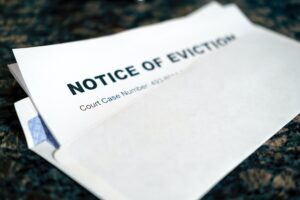The Massachusetts Attorney General’s office (AGO) earlier this year released its annual report on consumer complaints. For the first time, the report had more complaints concerning rental housing in the state than complaints against used car dealers. The difference wasn’t very much, just 9 more complaints received about mostly unsatisfactory sanitary conditions in rental housing, than the number of complaints about dodgy used car salespersons, but enough to be a concerning trend.
The release of the report prompted the state’s Department of Public Health to update the State Sanitary Code which contains minimum standards for residential landlords to comply with concerning the state of the premises they let out to tenants. Local Boards of Health have primary responsibility for enforcing the Code, which itself is a creation of the Department.
Changes to the Code became effective in April 2023. Residential landlords are prohibited from renting any kind of building for “cooking, eating, living or sleeping” if it does not comply with the Code. Buildings may be owner-occupied or just rented out and the term “building” includes mobile dwelling units as well as any other dwelling or dwelling unit.
Residential landlords are expected to ensure they are familiar with the Code and any updates. Both landlords and tenants have responsibilities and rights which must be adhered to; violations of these rights and responsibilities could lead to legal repercussions and potential penalties, including the possibility of eviction for the tenant and fines for the landlord.
Changes to the Code
The main changes to the Code that became effective this year included attention to the following:
- heat provision over the colder months;
- kitchen facilities must be provided;
- landlords must be reachable;
- landlords’ response to emergency situations;
- mold and excess moisture;
- pest inspections.
Heating must now be provided by the landlord from September 15th through to the end of May unless weather forecasts mean that the Board of Health revises these dates.
Kitchen facilities in rental properties must now include a refrigerator, a freezer, a cooktop and conventional oven unless the terms of the rental agreement specify otherwise.
Landlords must now be ‘reachable’ through a tenancy. This means that when a tenant has been given a landlord’s phone number, this number must be monitored at least on a 12 hourly basis in case there are issues or emergencies that must be attended to.
Landlords must now respond to a health and safety emergency within 24 hours of this being notified. A health and safety emergency is one that could impact negatively on the health, safety or well-being of any tenant in that landlord’s rental property. In the event of a leak or flood, the landlord must make sure that interior surfaces are dry within 48 hours of being notified or at the end of the event causing the leak or flood, whichever is the sooner of the two.
Mold and excess moisture, if detected in a rental property, can now be inspected by a Board of Health agent.
Pest inspections must be made by a landlord before any new tenancy. The results of the inspection must be documented and documentation must be submitted to a Board of Health agent if this is requested.
After the updated Code came into effect it was mandatory for landlords to change tenancy agreements and make the required inspections before new tenancies. Tenants can call the local Board of Health agent if there has been a violation of the Code leading to an inspection of the property.
Legal grounds for eviction in Massachusetts
Like familiarity with the State Sanitary Code, landlords and tenants should also be familiar with the legal grounds for eviction in Massachusetts. There is an established procedure involved in the eviction process. Landlords cannot just evict tenants without following this procedure. There are five main steps involved in this procedure, starting with providing a Notice to Quit. Depending on what happens at each step, the eviction procedure may continue, ultimately leading to the execution of the eviction, or the eviction may be paused following a legal challenge. A landlord may also stop the eviction procedure if the grounds for the eviction no longer exist.
The eviction process past Step 1 does involve filing a lawsuit for eviction and this will mean legal fees and court fees if the case goes to court, so it is important for landlords to ensure they understand their rights and responsibilities as well as those of their tenants. The same applies to tenants, too.
The five main legal grounds for eviction in Massachusetts have not changed substantially this year although some conditions have been modified by the state government. The main grounds remain as follows:
- non-payment of rent;
- an expired tenancy lease;
- damage to the property;
- illegal activities in the tenancy;
- violation of the terms of a tenancy lease.
In addition to these five main grounds for eviction, a landlord may be able to issue a notice to quit in what is called a no-fault eviction. Permissible reasons for a no-fault eviction in Massachusetts include selling the property, renovating it (usually a temporary eviction), or converting the property for other purposes.
Changes to the eviction laws
Changes to the eviction laws in 2023 include the following:
- longer periods of notice required;
- eviction notices must be more specific;
- rights of tenants have been improved.
The increase in notice to quit period now means that landlords must give 14 days to tenants so that they can make good non-payment of rent before an eviction lawsuit can be filed.
Eviction notices must now be more specific about the grounds for eviction, e.g. how much rent has not been paid, what specific lease violations have occurred, etc.
The update to eviction laws favor tenants’ rights in that they can now contest eviction notices and seek legal help to make landlords carry our repairs and maintenance issues.
For more information, visit our website Mucci Legal or contact us for a free initial legal consultation today.


